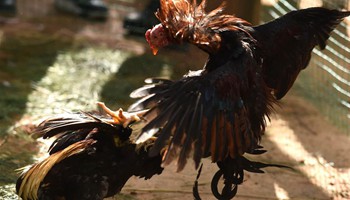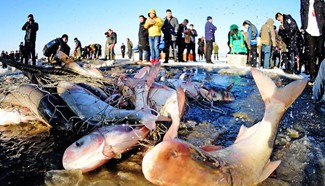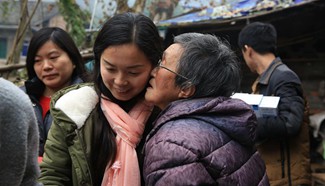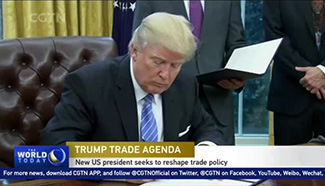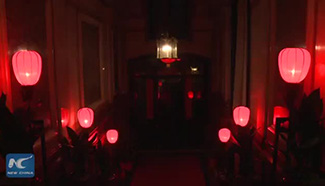WASHINGTON, Jan. 24 (Xinhua) -- U.S. experts on Tuesday warned against using wearable baby monitors, saying such devices may cause undue alarm to parents, with no evidence of medical benefits, especially to healthy babies.
In a viewpoint commentary published in the Journal of the American Medical Association, Christopher Bonafide of Children's Hospital of Philadelphia and colleagues examined five models of infant physiological monitors introduced over the past two years, with names such as MonBaby, Baby Vida and Owlet, at costs ranging from 150 to 300 U.S. dollars.
The manufacturers did not directly claim their products treat, diagnose or prevent disease, and the monitors have not been regulated as medical devices by the U.S. Food and Drug Administration (FDA).
However, an advertising video for Owlet mentioned sudden infant death syndrome and suggested that the device may notify parents that something is wrong.
The study came against the backdrop that a new class of smartphone-linked wearables built into socks, onesies, buttons, leg bands and diaper clips and marketed to parents for use in the home has emerged in the past two years.
These devices are used to measure infants' respirations, pulse rate, and blood oxygen saturation, and generate alarms for apnea, tachycardia, bradycardia, and desaturation.
"These devices are marketed aggressively to parents of healthy babies, promising peace of mind about their child's cardiorespiratory health," said Bonafide, citing an example that Owlet recently reported sales of 40 000 units of its "smart sock" monitors that claim to alert parents if their infant stops breathing, at 250 dollars each.
"But there is no evidence that these consumer infant physiological monitors are life-saving or even accurate, and these products may cause unnecessary fear, uncertainty and self-doubt in parents," Bonafide said.
Even if these consumer monitors prove to be accurate, Bonafide continued, "there is a serious question whether these are appropriate in monitoring healthy infants" because "a single abnormal reading may cause overdiagnosis -- an accurate detection that does not benefit a patient."
For example, he said, one reading of low oxygen saturation that would resolve on its own may trigger a visit to an emergency department, followed by unnecessary blood tests, X-rays and even hospital admission.
"Rather than reassuring parents, these experiences may generate anxiety and a false assumption that their infant is at risk of dying," they wrote. "These considerations introduce the prospect that using a monitor could indirectly result in harm to infants and their families."
As a result, the researchers concluded that until these monitors have been thoroughly evaluated and guidelines for use have been established, doctors should not recommend the use of these products.
"Their performance characteristics are unknown to the public and there are no medical indications for their use," they wrote.
"There is potential for harm if parents choose to use them. Child and family advocates should make it clear to the FDA and policy makers that regulatory guidance and research evaluating the safety, accuracy, and effectiveness of these products are needed."
In a response statement, Utah-based Owlet said many users will use the Owlet Sock "for several months without ever getting a false alarm, greatly reducing the risk over diagnosis."
"We have invested millions of dollars into data collection and storage, as well as the creation of a clinical team to focus on our mission to further knowledge of the issues affecting infant health," the company said. "As a company with more than 80,000 families using the product, we are confident in the positive results these families are experiencing."

